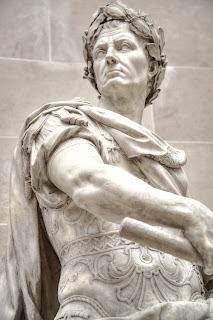The Roman Empire, one of history`s most influential civilization, witnessed a dramatic transition from a republic to monarchy that shaped the course of Western civilization. This blog discusses the rise and fall of the Roman Empire, highlighting the factors that contributed to its rise and ultimately its fall.
Roman Empire Timeline:
1. Roman Republic (509 BCE - 27 BCE)
2. Rise of Julius Caesar (48 BCE - 44 BCE)
3. Roman Empire Established (27 BCE)
4. Pax Romana (27 BCE - 180 CE)
5. Crisis of the Third Century (235 CE - 284 CE)
6. Barbarian Invasions (4th-5th centuries CE)
7. Fall of the Western Roman Empire (476 CE)
The Roman Republic's Foundations:
The story begins in the early days of the Roman Republic, a young democratic state based on the principles of civic participation and senate rule. The core of the republic consisted of a Senate of noble nobility, which advised and assisted two annually elected consuls who held executive power. This complex system laid the foundation for the republic's governance.
 |
| Photo by Pixabay: https://www.pexels.com/photo/ancient-architecture-arena-buildings-532263/ |
Internal Challenges:
As the Roman Republic grew, it encountered various internal challenges. Social inequality, exacerbated by the stark divide between patricians and plebeians, created tensions within Roman society. Additionally, Political corruption and factionalism emerged, undermining the republic's democratic ideals and hindering effective governance. These internal struggles threatened the stability of the republic.
Military Expansion and the Rise of Powerful Generals:
The Roman Republic's destiny became intertwined with its military conquests. Victorious generals, such as Julius Caesar, emerged as influential figures, commanding the loyalty of powerful armies and amassing immense wealth and fame. The successful military campaigns expanded Rome's territories and increased its wealth, while also challenging the traditional republican order.
The Triumph of Augustus and the Birth of the Roman Empire:
The Triumph of Augustus and the Birth of the Roman Empire:
Augustus' ascent to power represented a crucial juncture in Roman history. Amidst political turmoil and internal conflicts, Augustus emerged as Rome's inaugural emperor. Through adept consolidation of authority and the establishment of a fresh political framework, he effectively brought an end to the Roman Republic and initiated the era of the Roman Empire. Augustus personified the empire's might and dominance, embodying its strength and wielding unparalleled authority.
 |
| by-rosemania source- https://www.flickr.com/photos/rosemania/5371830337 |
Imperial Expansion and Cultural Influence:
Throughout the reigns of different emperors, the Roman Empire tirelessly extended its frontiers, accumulating extensive territories spanning Europe, North Africa, and the Middle East. This territorial expansion brought diverse cultures under Roman governance and facilitated a rich exchange of ideas and customs. The era known as Pax Romana, characterized by a relatively peaceful and stable environment, enabled flourishing trade, commerce, and the dissemination of Roman legal systems and cultural influences. As a result, the conquered lands were profoundly impacted, forever bearing the imprint of Roman law and culture.
Challenges and the Decline of the Roman Empire:
The Roman Empire faced numerous challenges that contributed to its decline. Internal struggles, including political instability, corruption, and economic crises, weakened the empire from within. External pressures, such as the relentless onslaught of barbarian invasions and the division of the empire into Western and Eastern halves, further eroded its power. These cumulative factors ultimately led to the empire's fall.
 |
| by-Nick Kenrick source-https://www.flickr.com/photos/33363480@N05/15553652759 |
Legacy and Enduring Influence:
Despite its eventual decline, the legacy of the Roman Empire remains evidence of its important contributions. Known for its sophistication, the Roman legal system had a great influence on subsequent legal systems throughout Europe. Ancient Rome's architectural marvels, including the iconic Colosseum and imposing aqueduct, still inspire awe and admiration for its engineering. Rooted in Roman civilization, Latin forms the basis of the Romance languages spoken by millions of people today. Moreover, the rise and fall of the Roman Empire is a compelling and instructive chapter in human history, offering valuable lessons about the complexities of political power and governance.


No comments:
Post a Comment